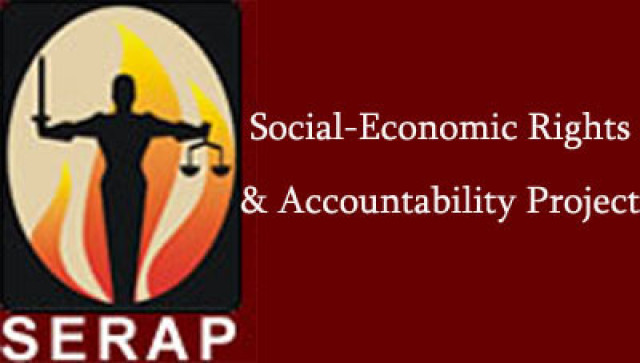The Socio-Economic Rights and Accountability Project (SERAP) has initiated legal action against the Central Bank of Nigeria (CBN) regarding its decision to implement what they describe as a clearly unlawful, unfair, unreasonable, and unjust increase in Automated Teller Machine (ATM) transaction fees.
Recently, the CBN declared that withdrawals made at ATMs owned by banks but outside their branch locations would incur a charge of N100 for every N20,000 withdrawn. Additionally, transactions at shopping centers, airports, or standalone cash points would carry a N100 fee plus a potential surcharge of up to N500 for each N20,000 withdrawal.
In the legal case numbered FHC/L/CS/344/2025, which was filed last Friday at the Federal High Court in Lagos, SERAP is requesting the court to assess whether the CBN’s decision to raise ATM transaction fees is arbitrary, unfair, unreasonable, and inconsistent with the provisions of the Federal Competition and Consumer Protection Act of 2018.
SERAP seeks a ruling declaring that the CBN's decision to hike ATM fees is arbitrary, unfair, unreasonable, and violates sections 1(c) and (d), 104, 105, and 127(1) of the Federal Competition and Consumer Protection Act of 2018, which the CBN is obligated to adhere to.
Furthermore, SERAP is requesting an interim injunction to prevent the CBN, along with its officers, agents, associates, or any individual acting under its authority, from implementing this fee increase while the court deliberates on the related motion for an interlocutory injunction.
In its arguments, SERAP contends that this fee hike cannot be justified under the amended Nigerian Constitution of 1999, the CBN Act, the Federal Competition and Consumer Protection Act, or Nigeria’s international human rights obligations.
They assert that the increase establishes a two-tiered financial system, discriminating against less affluent Nigerians who may struggle to pay the heightened ATM fees. Furthermore, they argue that this unjustifiable increase exacerbates human rights violations among socially and economically disadvantaged Nigerians.
The organization claims that the CBN is undermining its own mission to enhance the management of the nation's economy and ultimately hinder sustainable development.




















